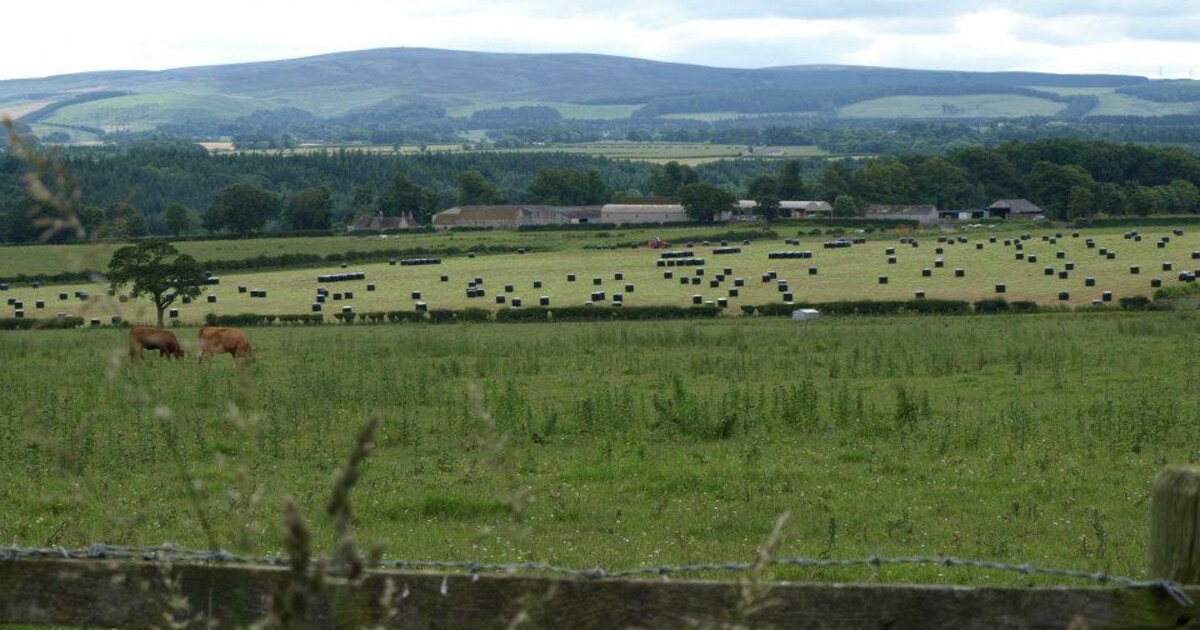A just transition for farming will benefit everyone

Agriculture is the dominant land use in Scotland, and is associated with almost a fifth of climate emissions. As conventional agriculture continues to intensify and consolidate, it also drives biodiversity loss.
Forestry also has major implications for climate and nature – some positive, and some negative, when it comes to large monoculture plantations.
Both the Scottish Government and UK Governments have made international commitments to lower carbon emissions and protect 30% of nature. Our land is also our biggest natural defence against climate change, and home to the majority of biodiversity. It is also home to people, and rural communities can play a crucial role in the ‘on-the-ground’ efforts to tackle the climate and nature emergencies.
So how can we support rural communities and industries in this role, for all of our sakes?
Public funds for public good
Last week I helped pass the Agriculture and Rural Communities Bill through the Scottish Parliament. The Act was needed to due to Brexit and enables the Scottish Government to financially support farming and other rural sectors. This financial support is necessary because the market does not sufficiently value food production, despite it being a fundamental public good.
Until now, farmers and growers on the smallest farms and plots were not eligible for government support, despite producing the most food per hectare and being better for climate and nature. After many meetings with the Scottish Government and with organisations like Land Workers Alliance, Nourish Scotland and Knockfarrel Produce, I amended the Bill to open up new support pathways for small producers, market gardeners and crofters. Those pathways could include a new dedicated support scheme tailored to small fruit and vegetable producers, as well as access to mainstream agricultural funding.
[Read more about my campaign to support small producers.]
Isecured further amendments to support rural activities that support people, climate and nature. Thanks to my changes (inspired by stakeholders like Scottish Environment LINK, Scottish Crofting Federation and Scottish Rewilding Alliance), the Government can now subsidise:
-
improving access to nature
-
cleaning up our air and water
-
starting a nature restoration business
-
processing wool
-
planting trees on farms to provide shelter and reduce soil erosion
-
improving deer management and venison supply chains
-
and managing more land for the good of nature.

New legislation for new incentives
Financial support can incentivise climate- and nature-friendly farming, if it comes with the right conditions. Conditions such as monitoring and reducing emissions, reducing pesticide use, improving biodiversity and complying with higher animal welfare standards.
Forestry can also be encouraged to provide better environmental outcomes, for example by requiring all publicly funded large forestry projects to conduct an Environmental Impact Assessment.
These conditions have not been set yet, so there is still considerable work to do to ensure that farmers and foresters are incentivised to make the necessary changes – to benefit their bottom line as well as our environment.
My amendments set out guidelines for Government support, including environmental outcomes that it should advance, and a duty to promote sustainable forestry management.
As the Scottish Greens’ Rural Affairs spokesperson, I will do all I can to ensure that the Scottish Government upholds its commitment to transform rural support, through setting stronger environmental conditionality and allocating a larger share of support for climate- and nature-friendly farming.
Going further for a just transition
I’m proud to have secured 18 amendments to strengthen the Agriculture and Rural Communities Bill and help rural communities play a key role in the growing green economy.
But more must be done to support communities through the significant changes that are needed in agriculture and land use in order to address the climate and nature crises.
I tabled amendments that aimed to:
-
help new and young farmers buy land, in the face of sky-high land prices;
-
give local communities a voice in relation to large-scale non-native tree planting;
-
redistribute a portion of farm support, so there is more for small farms and crofts and for climate and nature;
-
curb public subsidies for driven grouse moors and raising birds to be shot for sport;
-
provide support for growing mixed fruit and nut trees;
-
highlight the impact of fertiliser production and run-off beyond the farm gate;
-
ensure that rural payments help promote land reform and land access principles;
-
and encourage employers of seasonal farm workers to provide fair work in a safe environment.
Other parties voted against these amendments, so they were not accepted.
The Cabinet Secretary stated that work is however underway to advance these aims, and the Scottish Greens will follow this progress closely.
We will continue to urge the Scottish Government to rebalance the rural budget, so we can increase support for more people to farm, croft, grow, plant and restore nature in ways that will help rural communities grow and thrive, while helping stabilise the climate and regenerate the ecosystems on which we all depend.